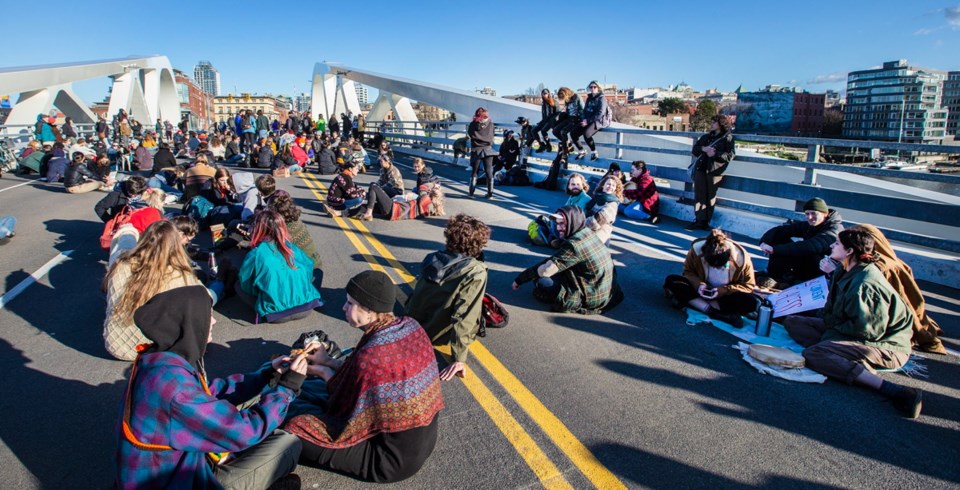With the Wet’suwet’en protests now largely behind us, for the time being at least, there is an urgent need for a serious discussion about how such matters should be handled in future. It seems quite likely there will be more to come.
We say that partly because when police forces stand aside and allow roads and rail lines to be blocked, it emboldens protesters to ramp up such tactics. But it is also a reality that our governments, provincial and federal, have communicated a sense of unwillingness to become actively involved.
The starting point for any such discussion should be how much is due to Aboriginal groups when resource projects are being planned. The Supreme Court of sa���ʴ�ý has said that consultation is obligatory, and that it must be meaningful, not cursory or perfunctory.
But the court has also ruled that First Nations do not have a veto over such projects. That is to say, while they must be heard in a respectful manner, and every effort made to mitigate whatever concerns are raised, their consent is not constitutionally required.
However, in a commentary on this page two weeks ago, a First Nations negotiator wrote that consultation is no longer by itself deemed adequate or sufficient. Consent is now a necessity if there is to be genuine reconciliation.
It is essential that our political leaders make clear where they stand on this. There are 198 First Nations in sa���ʴ�ý, and 634 nationwide. If consent, rather than consultation, is to become the ruling principle, that must be said.
In our view, this policy would be tantamount to hanging a “going out of business” sign at the border. What is the likelihood that foreign resource companies will invest in sa���ʴ�ý if such a labyrinthine approval process were adopted? Recently, American billionaire Warren Buffett pulled out of a liquid natural gas pipeline project in Quebec, citing “the current Canadian political context.” But what cannot be allowed to happen is continuing confusion as to what the rules are. That merely invites further blockades as protesters test the will and resolve of governments to call a halt.
There is a precedent here. In 1990 an armed standoff between police and members of the Mohawk First Nation in Oka, Ont., led to a police officer being killed. Ownership of land was at stake.
Two factors played a part in this tragedy. First, law-enforcement agencies, seeking to avoid a confrontation, stood aside in the early stages. But that merely allowed the situation to reach a boiling point.
Second, some of the protest leaders began believing their own rhetoric, which became increasingly violent as things dragged on for 78 days. Arguably, had police taken a firm stance earlier, this might not have happened.
There is also a necessity for leaders within the Aboriginal community to talk this matter through. Some of that is already happening.
For First Nations groups cannot complain about high levels of unemployment on remote reserves, with the accompanying dysfunction that causes, if some remain adamantly opposed to projects that can bring jobs to their region.
We understand the sensitivities involved. Numerous land title claims have gone unresolved for decades. Impatience and distrust are entirely reasonable given this fact.
But by slamming the door on resource projects, Aboriginal leaders are not only depriving their own people of much needed work. They are undermining the Canadian economy upon which we all ultimately depend for services such as health care and education. There is no future in that.
First and foremost however, Parliament and provincial legislators must stop waffling and make clear how future blockades will be dealt with. Until that happens, there is an open invitation for more of the same.



